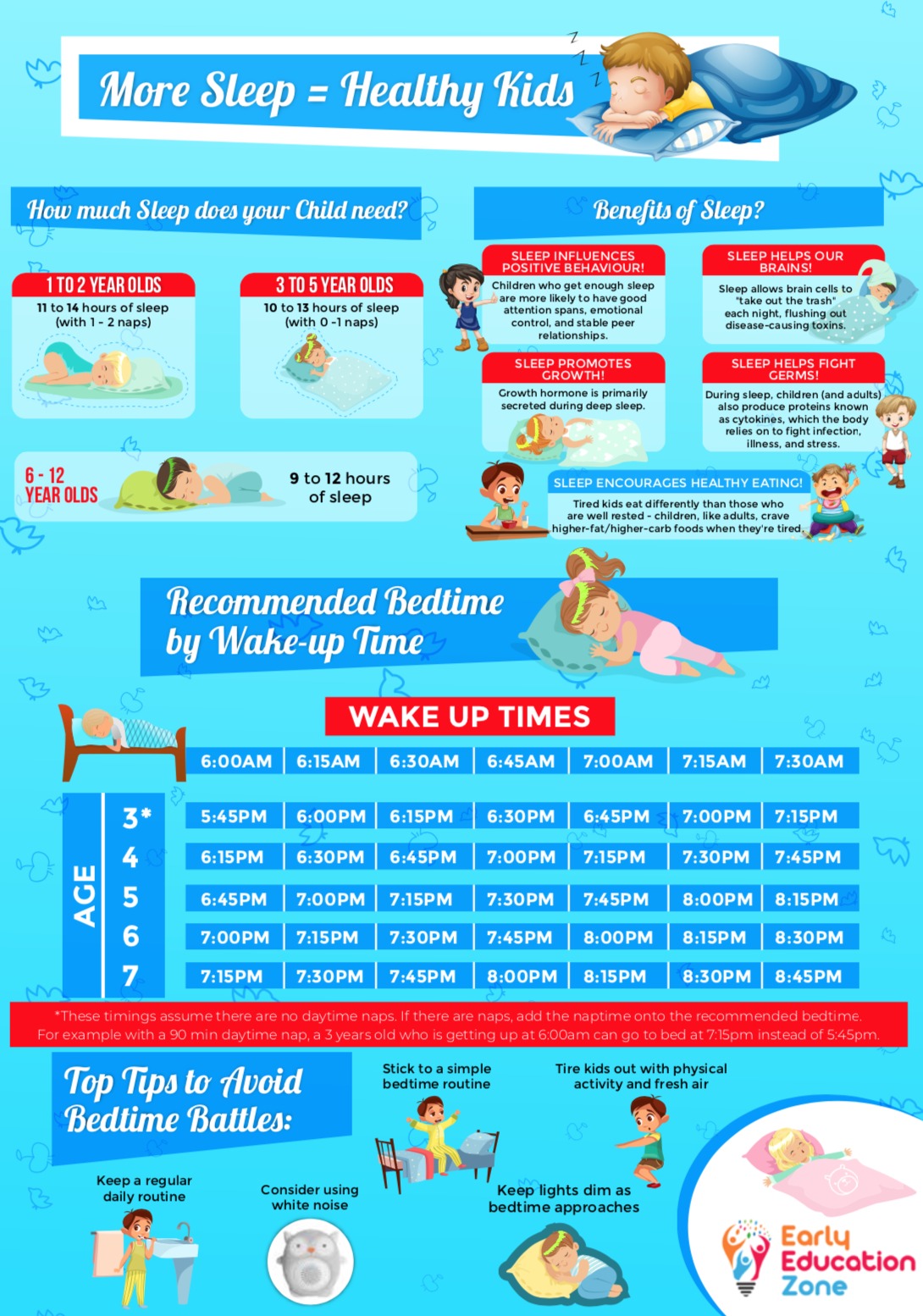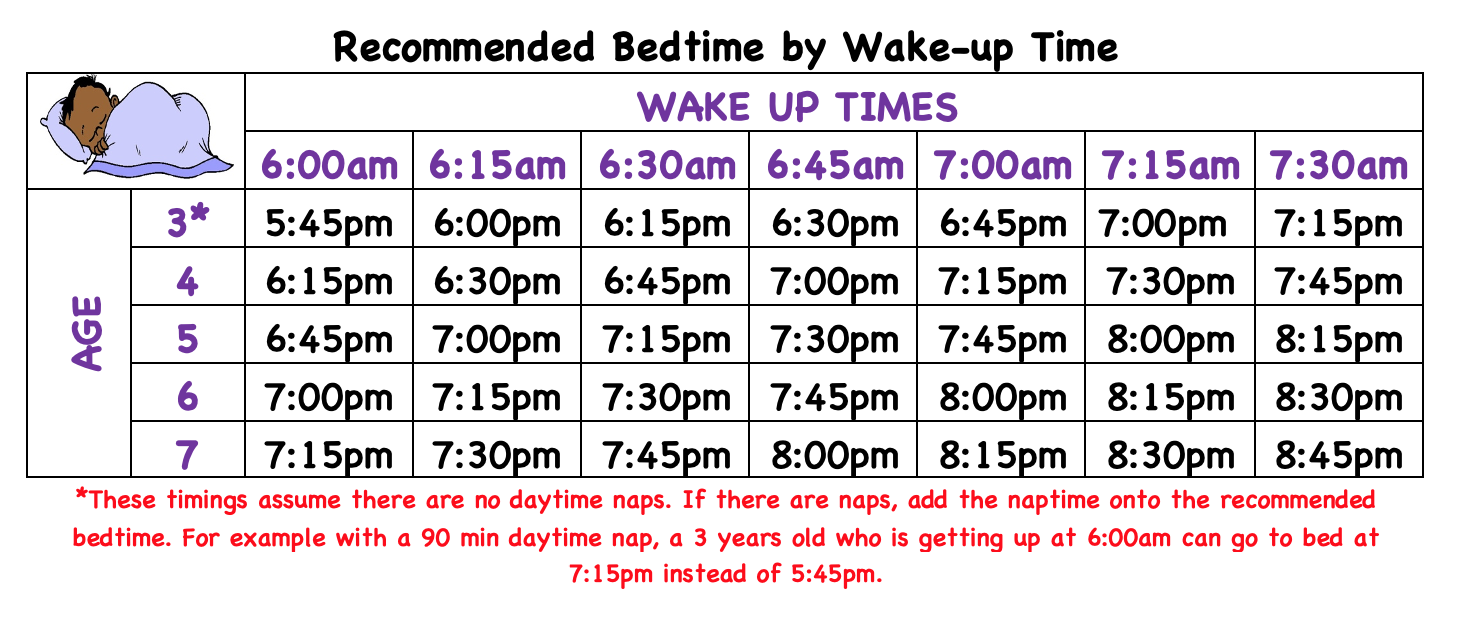Is your child sleep deprived? How does it affect their development?
 World Sleep Day is celebrated every March and it got us thinking about the importance of sleep in child development.
World Sleep Day is celebrated every March and it got us thinking about the importance of sleep in child development.
As parents, we are reminded on a daily basis to feed our children healthy food, to limit their screen time and to engage them in stimulating activities. Sometimes the issue of sleep can be pushed aside.
Our busy modern lives aren’t designed with sleep in mind. Parents’ workdays are getting longer, which means dinner and bedtime are pushed later into the evening. Homework and activities can also take up precious post-dinner hours.
The distractions seem endless, and while it is common for adults to sacrifice sleep, it is a mistake to assume that children can also get by on less sleep. But how much is enough? When it comes to sleep, the starting point is to know exactly how much sleep children need at each stage of their development. 
How does lack of sleep affect children?
The importance of sleep in child development continues to be explored by researchers. A 2017 study published in the Academics Pediatrics Journal found that children aged 3 to 7 who don’t get enough sleep are more likely to have problems with attention, emotional control, and peer relationships in mid-childhood.
Elsie Taveras, a paediatrics professor at Harvard Medical School and the lead researcher of the study noted that sleep levels during infancy often predict sleep levels later in life. It is therefore incredibly important to promote good quantity and quality of sleep from an early age.

Parents sometimes wait for typical signs of tiredness to put children to bed, but yawning and drowsiness are not the only signs that a child is getting too little sleep. Other symptoms put forward by the research include:
- Hyperactivity
- Crankiness
- Impulsiveness
- Short attention span
Paediatric sleep expert, W. David Brown, who specialises in diagnosing and treating paediatric insomnia, recognises the importance of sleep in brain development. Studies have shown that a lack of sleep in childhood can fundamentally change the way our brains are wired, affecting us for the rest of our lives.

Bedtime Battles
 Fights and arguments over bedtime can be one of the biggest power struggles you’ll have with your child, no matter what their age.
Fights and arguments over bedtime can be one of the biggest power struggles you’ll have with your child, no matter what their age.
Many kids just don’t want to go to bed at night. For most of them, they’re afraid they’re going to miss something. With others, it might be because they’re frightened of the dark, or afraid to go to sleep. For some kids, they simply want to be in control.
Late bedtimes, waking in the night, and early wake-ups all reduce a child’s chance of getting a full night’s sleep. Taking a closer look at the bedtime routine and sleep environment may be the first step in battling the bedtime blues.
Top Tips for Making Bedtimes a Painless Experience
1. Establish night time routines from a young age
Bedtime routines lower the anxiety levels for both children and adults, as everyone knows what is going to come next.
A bedtime routine usually consists of bath time, books and some special cuddle time. It should not be longer than 30 minutes in length, so if you want your child asleep by 7:00pm you should start bedtime at 6:30pm.
The chart below can help you decide on an appropriate bedtime based on your child’s wake-up time and age. Remember: at the end of the bedtime routine, children should be aware of you leaving the room and should be able to soothe themselves to sleep. If they have trouble self-soothing, give them ideas of how to relax their minds and bodies, such as singing gentle nursery rhymes or counting sheep.

2. Limit screen time in the lead up to bedtime
Kids tend to run on high speed all day long, so a slow-down period in the late afternoon or evening is essential to a peaceful sleep.
Screens emit blue light, which can actually stimulate the brain and lead to trouble falling asleep. Instead of screen time, take a walk after dinner, read books together, or play quietly. These activities will help your child to relax and sleep.
3. Create the right environment for sleep
Make sure the room is quiet, dimly lit and non-stimulating. Every child will have their preference on the right amount of light and there are great nightlights out there with adjustable brightness levels.
Groclocks are a great first “alarm” clock for children who are too young to tell the time. The night time screen tells them when it is sleep time and they can look forward to the sunshine screen when it is time to wake up. Having a concrete way for a child to see that it is time to go to sleep gives the child a sense of control over the bedtime experience.
White noise machines are a great purchase if your child is a light sleeper and often wakes up to noises around the house or from the neighbourhood.

Groclocks help children who are too young to read ordinary clocks, to understand when it’s time to get up.

SNOOZ is an ultra-portable white noise sound machine that turns your child’s bedroom into a haven for sleep.
Take our sleep quiz
How much do you really know about your child’s sleep? From the recommended number of hours, the tell-tale signs that your child isn’t getting enough sleep, and how to improve the bedtime routine. Take our kids sleep quiz to test your knowledge.

Let’s get our children to sleep!
The importance of sleep in child development cannot be underestimated, but there are so many factors to consider when discussing children’s sleep. It is most important that we not only encourage our children to adopt healthy sleep habits, but we must also be role models by demonstrating the importance of sleep in our own lives.





